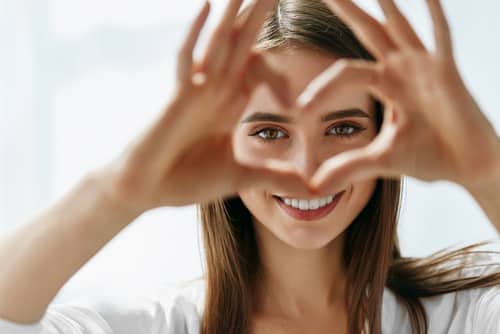Most people know that they need to protect their skin from the sun. Unfortunately, far too many people forget the importance of eye protection. Of course, you can’t put sunscreen on your eyes, but that doesn’t mean there aren’t some proven ways to give your eyes a bit more protection. It can be straightforward to protect your eyes, but it’s often something that most people rarely give any thought to. Harmful UV-A and UV-B rays can cause various eye problems, from damaged central vision and retinal deterioration to long-term cornea wear. If you put your sunscreen on and head outside without thinking about the damage you might be causing to your eyes, here’s what you need to know.
Issues Caused by UV Rays
UV rays can cause a lot of eye problems. If your only concern when going outside into the sun is causing wrinkles due to squinting, you might be surprised by how much those UV rays might be causing damage. The main problems that UV rays can cause include the following:
- Cataracts: This is when your eye lens becomes clouded and can cause severe problems in terms of vision.
- Pterygium is a growth usually found in the white of your eye. Sometimes, a Pterygium will grow on the cornea. In both cases, you will suffer from varying degrees of vision loss.
- Skin Cancer: It’s not just your eyeball itself; the skin around your eyes is vulnerable to UV rays. Cancer on the eyelids is considered an eye problem due to the care needed in treatment.
- Sunburn: That’s right, your eyes can get sunburned too. Medically, it’s called photokeratitis, but it’s sunburn on the cornea, and it can be excruciating and cause temporary loss of vision.
- Macular Degeneration: The macula is the central part of your cornea. UV rays can cause severe wear and tear on your macula and lead to partial or total vision loss. This is a prevalent condition among older people.
While these are some of the most common eye problem issues you will want to avoid, there are additional conditions you will need to be aware of. Looking after your eyes is vital for your quality of life, and failing to protect your vision can have serious long-term consequences.
Glaucoma
UV rays do not cause all eye problems. Glaucoma is a prevalent condition that can cause blindness because it causes severe damage to the optic nerve. This is the part of your eye that transmits information to the brain, so any damage caused to it can be severe indeed. One of the biggest problems with glaucoma is its various seemingly non-serious warning signs. Usually, the only time it will be detected is when you have a complete eye exam.
If you start to develop glaucoma, the damage has already been done by the time you know what it is. Peripheral vision goes first, but blindness is often the result. There’s only one way to protect yourself against glaucoma: having regular eye exams. Optometrists have been trained to recognize glaucoma signs and ensure you get the treatment you need to slow down the condition and prevent further vision loss.
Diabetic Retinopathy
People with diabetes know how much they need to manage their condition, and failing can have catastrophic results. One of the lesser-known problems caused by diabetes mismanagement is diabetic retinopathy. The problem is that diabetes can slowly damage your retina, leading to varying degrees of vision loss. This is why people with diabetes need to book regular eye exams. A trained optometrist will spot the warning signs and advise you on treatment options. The most common symptoms of diabetic retinopathy include the following:
- Blurred or distorted vision
- Glare sensitivity
- Problems with balance
- Having more problems seeing at night
The problem is that these symptoms can sometimes be easy to miss. Failing to detect diabetic retinopathy can lead to severe vision problems if untreated, so protecting your eyes and booking regular eye exams are essential for diabetes people.
Vision Conditions: What to Watch Out For
You should be aware of the symptoms if you want to avoid the common and not-so-common eye conditions that nobody is safe from. While regular eye exams are vital for the future of your vision, you should book an emergency appointment with your optometrist if you notice any of the following:
- Eye pain: This is an emergency, and you should get treatment immediately.
- Partial/Total loss of vision: If this occurs in one or both eyes, even temporarily, you should book an appointment with your optometrist as early as possible. Let them know why you are booking an appointment, and they will prioritize your eye exam.
- Double Vision: This can signify that one of your eyes is weaker than the other. While double vision can be frustrating, it could also be a symptom of astigmatism, cataracts, or keratoconus. Double vision will affect your ability to drive, and if you suffer from it regularly, you will need to inform the DMV.
- Blind Spots: If parts of your vision have deteriorated, you must see an optometrist as quickly as possible. This includes if you have symptoms like seeing halos around lights or distorted areas of your vision. These can sign various conditions, such as glaucoma, retinal detachment, or optic nerve inflammation.
- Injuries: If you get hit in the face by an object, and the impact occurs either on the eye itself or the bone surrounding your eye, medical treatment is a priority.
Trauma to the eye and the area around it can result in traumatic iritis, and this type of swelling can be excruciating. You may even lose vision if you fail to get the proper treatment.
If you suffer from any of these issues, you must see an eye care professional as early as possible, even if they are temporary. The earlier you get treatment, the easier it will be to limit your vision loss and reduce the potential for further deterioration of your sight. No matter your age, awareness of your vision’s threats can make it easier to identify when there might be an issue. Avoid direct sunlight, watch your diet, and make sure that you book appointments with your optometrist regularly. The more aware you are of the risks, the more likely you can prevent long-term issues resulting in vision loss.

